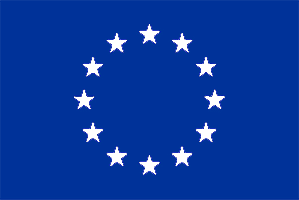Our Curriculum
Teaching and Learning is at the heart of school life. We make sure that our curriculum is wide-ranging and balanced, with planned progression and ambition, meeting the requirements of the Curriculum Guidance for the Early Years Foundation Stage, the National Curriculum, Religious Education and Collective Worship.
If you cannot find what you need on any of our curriculum pages please let us know.
Vision (What drives our curriculum?)
Our curriculum is driven by;
- Our Christian values creativity and wonder, respect, aspiration, joy, empathy, resilience.
- Our locality, we link the national curriculum to where we live and learn through exploring the outdoors.
- Our global community, through our links to our international partners and our emphasis on educating children on their responsibility to care for our planet.
- Our belief in the importance of an Arts based education, its role in widening children’s cultural experiences and developing children’s spoken language thinking.
- Promoting a love of reading by introducing children to high quality texts.


Intent (What do we intend our children to learn?)
Our intention is to create and implement a curriculum for our pupils that introduces a range of key concepts, in ways which enable learners to build them into reliable schemata. We are ambitious for our learners and measure the impact of what we do, using agreed principles of assessment. We regard the proper use of assessment as a key teaching and learning tool, and place it firmly at the heart of our practice.
You can find the subject specific progression models on each subject’s webpage.
Implementation (How is our curriculum being delivered?)
We plan a broad, balanced and ambitious curriculum rooted in the National Curriculum and Early Years Curriculum that enables children to develop their knowledge, skills and understanding over a series of lessons. We make connections across the curriculum, enabling children to recognise links across subjects and to develop their understanding of the world in which we live. Our school-wide themes allow children to make links and build on prior knowledge, while our subject specific planning helps us to focus on the most important and useful knowledge in each subject and ensure children learn the disciplines and skills associated with that subject.
Wider Curriculum
We recognise the importance of all areas of the curriculum, which are planned for over a 2-year planning cycle due to our mixed aged-classes. Each curriculum subject has a long term progression plan. This sets out the aims and purposes of the subject; the breadth of study for each year group; the threshold concepts and how these build up to Year 6; the key vocabulary that must be learnt to support those threshold concepts; the milestones per year group (or Year 2, 4, 6 in some subjects); and the activities teachers will use to assess children’s progress. These long term plans ensure progression which can be monitored by subject leaders. Our Knowledge Organisers, based on the long term planning, ensure each teacher has clarity as to what to cover in each unit of learning and ensure children learn the skills and disciplines associated with that subject.
The ‘big ideas’ or ‘threshold concepts’ are domain specific concepts which open up new ways of thinking about the subjects and help pupils to link new knowledge and commit it to their long term memories. We consider this to be the most powerful knowledge in each subject domain. Threshold concepts are the key disciplinary aspects of each subject. They are chosen to build conceptual understanding within subjects and are repeated many times in each unit. These concepts help teachers to present new information clearly and build on what has been taught before.
Teachers plan the vocabulary that the children will be taught so that it is extended at every stage of their primary journey with opportunities to ask questions and talk about their learning. It is understood that through developing vocabulary children are better able to acquire and deepen their knowledge.
There are frequent opportunities for children to practice, remember and retrieve knowledge through ‘no stakes’ quizzes, regular repetition, plenaries in lessons and practice. At the end of a unit of learning, teachers will either plan an activity for children to demonstrate their depth of knowledge in that unit, and/or scaffold a Double Page Spread activity to capture and celebrate the learning from the unit, allowing children to engage in the practical application of writing, art and DT skills to aid the presentation of learning.
Assessment, review and evaluation informs next steps in planning, therefore there may be some changes in the Long Term Plans over the 2 year period. These are detailed in class teacher’s plans.
Our overviews tell you what unit children in each year group are learning each term. More details about each unit can be found by visiting our subject-specific curriculum pages.
Personal Development
Opportunities to enrich, extend and develop our children’s personal development are woven into everyday life and our curriculum. These are mapped out in our Personal Development Timetable. This is a working document as opportunities for personal development change all the time so please speak to your child’s class teacher if you have any questions about upcoming trips, visitors or enrichment opportunities.
Personal Development Timetable Shoscombe 2022-2023
Our outdoor learning opportunities enrich our children’s physical and personal development whilst also making important real-life links to our curriculum. These activities all have a positive impact on children’s mental health and overall well-being.
Orienteering
All children in Years 1 to 6 will take part in a term of orienteering as part of Flexi Friday. This is run by the staff at Chelwood Activity Centre in the school grounds. This links to geography map skills as well as developing our children’s resilience, problem solving skills and communication and language around teamwork.
Forest School
Every class will take part in two terms of forest school sessions, also as part of Flexi Friday. These sessions link to many curriculum areas such as Design Technology, geography and science whilst developing curiosity in nature, team work, independence and resilience. Forest School sessions will also develop skills such as team work, using tools, problem solving and physical activity.
SEND
SEND children are supported to make the same progress as all other children in their core subjects, by providing them with appropriate support and guidance to support them in meeting or exceeding their targets. We have as high expectations for pupils with SEND as we do for all pupils.
Impact (What difference is our curriculum making?)
Our children are happy, engaged and enthusiastic learners who strive to do their best. They have high personal aspirations. They have a good understanding of Christian values and how these can support them to become successful and happy citizens. Children develop and take with them a range of life-long skills for learning. Children have broadened their cultural experiences and deepened their knowledge, understanding and empathy for others. They are caring and kind individuals. We continue to support children in their recovery from the Coronavirus pandemic.
The impact of recent improvements in our curriculum are seen in pupils’ books and while walking around school. Children talk about their learning with enthusiasm and confidence. They show good recall of key knowledge and can make meaningful connections across units of learning. We track carefully to ensure that our children are making good progress and are fulfilling their potential. We expect to see this reflected in future national assessments.
Our subject leaders will check the impact of our curriculum through pupil conferencing and work sampling. We anticipate that as we embed our new long term plans and knowledge organisers that children will reach each milestone, demonstrating sustained mastery of the content. Some children will demonstrate a greater depth of mastery.







